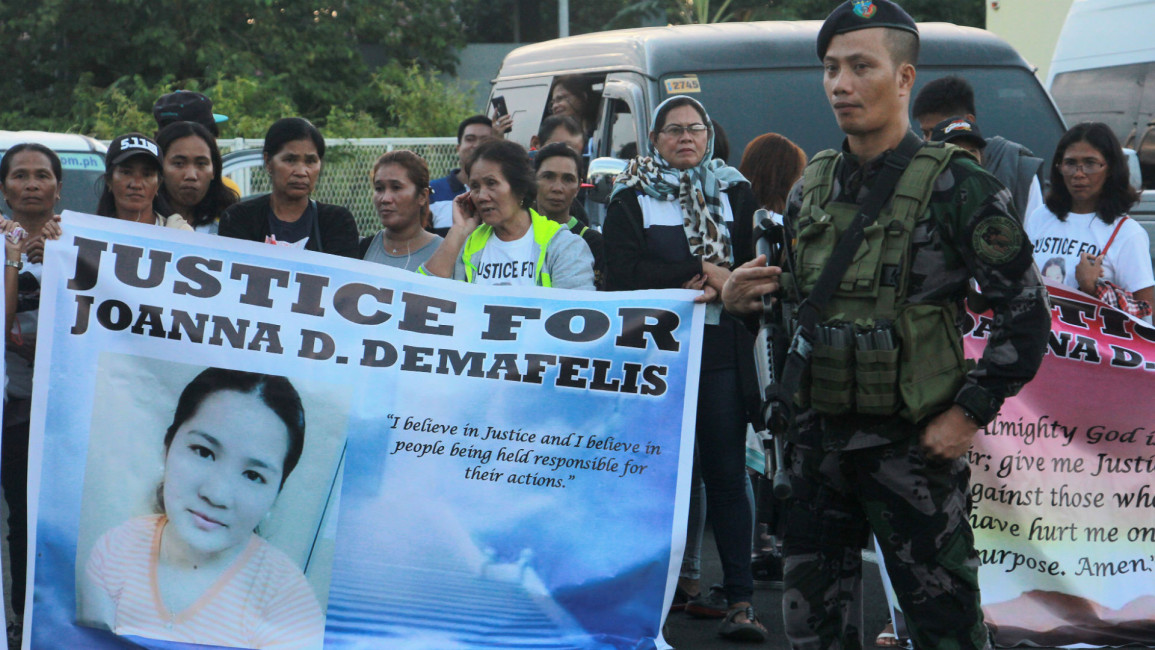Kuwait 'sentences Filipina maid murderers to death by hanging'
A Lebanese man and his Syrian wife to death by hanging over the murder of a Filipina maid, a Kuwaiti judicial source said.
A Kuwaiti court issued the sentence in the first hearing in the case of Joanna Demafelis, the 29-year-old maid whose body was found in a freezer in Kuwait earlier this year.
The sentencing can still be appealed if the couple returns to Kuwait, the source added, speaking on condition of anonymity.
Philippines Ambassador Renato Pedro Villa declined to comment on the verdict, saying Manila would wait for the rendition of the convicts.
The Lebanese-Syrian couple were arrested in February in the Syrian capital Damascus following an Interpol manhunt.
Syrian authorities handed the husband, Nader Essam Assaf, over to Lebanese authorities, while his Syrian wife remained in custody in Damascus.
Philippines Undersecretary for Migrant Workers Affairs Sarah Arriola on Sunday was scheduled to hold talks with officials in Kuwait on conditions for Filipino workers, including labour law violations.
The Demafelis murder triggered a diplomatic crisis between Kuwait and the Philippines, prompting Manila to impose a departure ban for its citizens planning to work in the Amirdom.
An estimated 252,000 Philippines citizens work in Kuwait and depend on remittances to help their families back home.
In the wake of the Demafelis murder, Manila has been working to facilitate the return of its nationals who wish to leave, including those who have lost their residency status.
Ambassador Villa said on Sunday that his country has already repatriated 4,000 Filipino nationals living in Kuwait without the necessary paperwork.
"We are now in talks with Kuwaiti authorities to secure an amnesty that will allow 6,000 Filipinos living without papers to return," he said.
Rights groups have voiced alarm over the plight of workers in the Gulf and other Arab countries, where migrant labour is regulated under a system known as "kafala".
The Middle East's Gulf region has an estimated 2.4 million migrant domestic workers, the majority from Asia and Africa. They fall under the kafala ("visa sponsorship") system, forbidding them to leave or change employers without their initial employer's consent.
If they do, they can be arrested and punished for "absconding" with fines, detention and deportation.
The isolating and harsh working conditions often, though not always, lead to workers being treated as property of their employers - leaving the worker vulnerable to exploitation and abuse.
Also in the Gulf region, rape victims can face charges of zina - "sexual relations outside of marriage" - once they report the crime.



